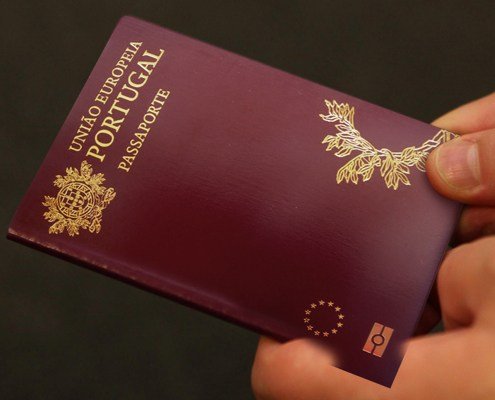If you’re interested in how to become permanent resident in Portugal, this article is for you. Every year, thousands of people visit or relocate to Portugal because the country offers comfortable and cultured living at a low cost.
Have you ever dreamt of basking under the Portuguese sun, indulging in delectable pastel de nata, and immersing yourself in a rich cultural tapestry? With its stunning landscapes, vibrant cities, and laid-back charm, Portugal is increasingly captivating hearts and becoming a sought-after destination for those seeking a permanent change of scenery.
But how do you turn that dream into reality? The answer lies in achieving permanent residency – your gateway to enjoying all Portugal offers without limitations. Beyond that, Portugal is one of the easiest countries in Europe, especially for North Americans, to secure a long-stay residency visa. Again, your application process can be straightforward depending on your origin country and chosen visa pathway.
Whether you’re a retiree yearning for sun-kissed days, a remote worker seeking a digital nomad haven, or an entrepreneur pursuing your business dreams, this guide will help you understand the best way to secure a Portuguese permanent residence visa.

What is Portuguese permanent residency?
First, let’s establish what the Porrtuguese permanent residency is and isn’t. The idea of ‘permanent residency’ is that you have the legal right to reside in a country long-term without being required to renew your visa repeatedly.
The permanent residency differs from the temporary residency visa you get immediately after moving to Portugal. In truth, you generally qualify for Permanent residency status after residing for some time. Typically, the timeline to qualify for permanent residency is 3 to 5 years.
Again, permanent residency is the bridge between temporary residency and citizenship.
Beyond that, even as the name says “permanent,” you’ll still have to renew your permanent residence card. But in the case of Portugal, you’ll renew every 5 years, as opposed to temporary residence permits that require 1 or 2 year renewals.
How to become permanent resident in Portugal: 5 popular ways
Portugal offers diverse routes to permanent residency, each catering to different profiles and circumstances. Here’s a quick overview of the most popular options:
1. Residency by Investment or the Golden Visa program.
Invest €500,000 in real estate, €350,000 in investment funds, or €250,000 in job creation. This route is the fastest track to residency (5 years), and you don’t have to reside in Portugal full-time. That said, recently, investing in real estate via the Golden Visa program is no longer available. It used to be the most popular option.
However, you can use other routes under the Golden visa investment, such as investing in scientific research, Portuguese arts and culture, creating a business, or investing in small to medium enterprises in Portugal.
Beyond that, transitioning from the Golden visa to residency will still require that you pass the Portuguese language test.
2. Residency through employment:
You can also seek employment in Portugal to move to the country. However, there are two ways to do this, depending on your country of origin.
Countries from some non-EU countries with bilateral agreements allow their citizens to come to Portugal and then apply for a work residence visa in Portugal within 90 days of arriving in the country. This is different from other countries, which require that you have a work residence visa before coming to the country. Countries with bilateral agreements include
- New Zealand
- Canada,
- US
- Australia
- Japan,
- Israel.
You can change it to a residence permit after entering Portugal with a Portuguese work visa.
3. Residency by Family Reunification
Portuguese law allows holders of residence permits to be joined by their immediate family members or dependents. To do so, the holder would apply to SEF for family reunification for entry into Portugal and residence of his family members.
If you’re going through this process, you’ll need the following documents when applying at the SEF:
- Authenticated copies of identification documents of applicant’s family members
- Authenticated supporting documents showing family connections
- Proof of accommodation
- Proof of financial readiness
- A criminal record certificate from country of origin or where the applicant has resided for more than a year
4. Residency through the Passive Income visa
Portugal also provides a passive income visa called the D7 visa. This visa is aimed at retired individuals as well as remote workers. As long as you can prove that you receive a monthly income higher than the Portuguese minimum wage, you qualify for this visa.
That said, you must prove you have sufficient financial support for one year. So you must have saved up at least one year of the Portuguese minimum wage. For example, you should have $8,460 per year for one applicant, $4,230 for the spouse, and $2,528 for children.
The Portuguese D7 visa also qualifies you for permanent residency. First, you’ll be issued a 1 year visa (temporary residence permit) that’s renewable for two years. Hence, after 5 years, you’re eligible to apply for Portuguese permanent residency or citizenship.
Besides having a small entry threshold, this residency program also stands out because most people coming through it can qualify for full tax exemption on foreign source pensions, dividends, and royalties for up to 10 years.
Nevertheless, the D7 visa requires that you are physically present in Portugal for eight months during the first visa period and six months during the consecutive renewals.
Also note that when applying for permanent residency or citizenship after the initial 5 years, you must demonstrate understanding of the language.
Documents you’ll need for this process include:
- A valid passport and two photos
- A NIF, which is your tax number in Portugal
- Proof of income
- Proof of health insurance
- A criminal background check
- Personal statement about why you want to reside in Portugal
- Proof of sufficient financial support equivalent to a year’s savings of the Portuguese minimum wage.
- Proof of accommodation for one one-year rental contract or purchased property. You cannot use an Airbnb or other short-term rentals for this purpose. Discover more information about securing an accomodation in Portugal.
5. Residency by Marriage
Marriage is another part of Portuguese residency. Once you marry a citizen of Portugal, you can apply for residency and work your way towards citizenship. First, you will get a temporary residence permit for five years. After this, you can opt for a permanent residency. That said, during this five-year period you don’t also have to live continuously in the country.
Alternatively, if you’ve been married to a partner for at least three years, you can apply to obtain Portuguese citizenship immediately. But note that you’ll also demonstrate that you know the Portuguese language and have effective connections to the Portuguese community. Learn more about securing your residency via Marriage.

Embarking on Your Residency Journey:
Once you’ve chosen your preferred path, it’s time to meticulously plan your journey. Here’s a breakdown of the essential steps:
Gather your documents
Collect all necessary paperwork, including financial statements, proof of address, and clean criminal record certificates. Remember every visa type has speciffic application procedures and eligibility criteria. You need to adhere to them precisely.
Finding Accomodations in Portugal
Finding Accomodations in Portugal
Accommodations are a crucial aspect of your application for the temporary residence permit in Portugal. As said earlier, you need a yearly contract.
But also note that contracts can be broken if you find that you aren’t happy with the accommodations you got. So, you don’t have to worry about making that commitment.
Even so, Rental contracts legally must be written in Portuguese. So you can ask for a translation or get an agent to help you go over it line by line.
Banking in Portugal
Before you move to Portugal, you’ll also have to open a bank account in the country before your move. Depending on your country, you can get that bank account by working into banks in your country of residence or via a trip in person. This article provides all the details on opening a bank account in Portugal.
Seek professional guidance
Consider consulting immigration lawyers or residency experts for personalized advice and assistance. They will help you create a roadmap to residency in Portugal depending on your unique situation. They can also offer critical advice on other important aspects of your application such as getting the NIF number or opening a bank account in Portugal.
Be patient and persistent
Processing times can vary, so patience and persistence are key to success. Ideally if you work with an immigration officer, they should be able to guide you on all the crical details that affect you about how to become permanent resident in Portugal.
Beyond the Application
While obtaining residency is crucial, remember that integration is equally important. Here are some additional considerations:
- Taxes: Familiarize yourself with Portugal’s tax system and obligations for permanent residents.
- Healthcare: Explore your healthcare options and understand resident eligibility for public and private plans.
- Culture and language: Embracing the local culture and learning Portuguese will not only enrich your experience but also simplify daily life.
- Community: Network with other expats and locals to build a support system and feel more at home.

Unveiling the Perks of getting the Portuguese Permanent Residency
While you ask the question, ‘how to become permanent resident in Portugal’, you should also learn the amazing benefits that are coming your way.
Unrestricted Residency
First you can live in Portugal indefinitely without limitations of visa validity periods. As long as you meet all instructions with your permanent resident status, you can also always travel to your country of origin as well as other countries. Portugal might just be your home away from home, offering stability and peace of mnd.
Work opportunities
Gaining permanent residency in Portugal opens doors to hundreds of work opportunities that you couldn’t apply for before. You’ll be able to pursue employment, establish your business and even leverage freelancing opportunities without restrictions.
Access to healthcare
Portugal has one of the best healthcare systems in the world. Paired against the high standiard of living and low cost of living, you can expect to have an amazing time in the country.
Access to social benefits
In Portugal, your permanent residence status also gives you access to benefits typically reserved for citizens. This can include healthcare access, social security benefits and other social programs.
Schengen Zone Mobility
When you have the Portugese permanent residency, you equally have visa-free travel to all 26 Schengen zone countries. This means you can have spontaneous adventures, explore the numerous cultures and avoid the hassles of border checks.
Permanent residency versus citizenship
As said earlier you might qualify for permanent residency or citizenship after 5 years of living in Portugal. But then permanent residency is not equal to citizenship. Permanent residents enjoy most but not all the rights and privileges that citizens have. For instance, permanent residents do not have voting rights and cannot hold certain public offices. Additionally, you can not live outside of Portugal indefinitely. If you stay outside Portugal for a consecutive period of 24 months or a non-consecutive period of 30 months over 3 years, you might lose your permanent residency status.
Does a student visa count towards citizenship/permanent residence?
No, the Portuguese student visa does not count towards permanent residency or citizenship. However, once you’re done with studying, you can get employment which qualifies you for a visa that counts towards your citizenship.
How long is Portuguese residency valid for?
A temporary residence permit usually lasts one year from the date of issuance. Then you can renew it for another two years and agan for another two years. Finally after five years you can either apply for permanent residence permit or citizenship. A permanent residence permit has to be renewed every five years.
Concluding Thoughts
Portugal awaits you with open arms! This guide has equipped you with the basic knowledge and roadmap to navigate the path towards permanent residency. Remember, thorough research, meticulous planning, and professional guidance are crucial for a smooth journey. So, pack your bags,Living the Dream Starts Here: embrace the adventure, and get ready to live your Portuguese dream!






